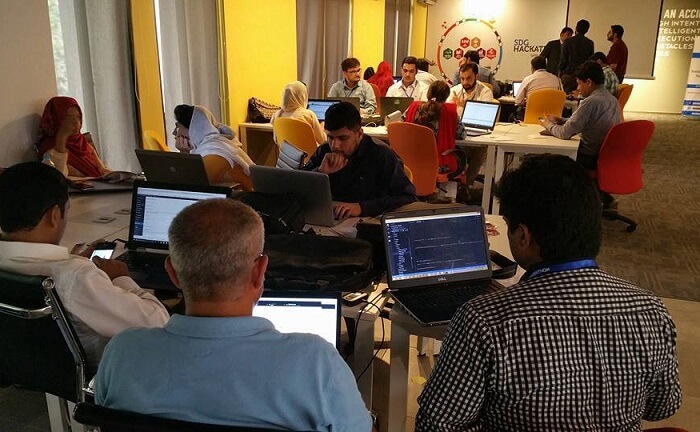Table of Contents
Introduction
In today’s rapidly evolving technological landscape, innovation and entrepreneurship are key drivers of economic growth and societal advancement. Technology incubation centers (TICs) play a crucial role in fostering innovation by providing startups and entrepreneurs with the resources, support, and mentorship needed to transform their ideas into viable businesses. These centers act as catalysts for innovation, offering a nurturing environment where new technologies can be developed, tested, and brought to market. This article explores the significance, benefits, and future prospects of technology incubation centers, highlighting their impact on the innovation ecosystem.
The Concept of Technology Incubation Centers

Definition and Purpose
Technology incubation centers are specialized facilities designed to support the growth and development of startups and early-stage companies. They offer a range of services, including access to office space, funding, technical resources, and mentorship. The primary goal of TICs is to create an environment that fosters innovation and helps startups overcome the challenges associated with the early stages of business development.
- Support for Startups: TICs provide essential support to startups, including business development assistance, access to funding, and networking opportunities. This support is crucial for new companies that may lack the resources and experience needed to navigate the complexities of the business world.
- Innovation Ecosystem: TICs contribute to the creation of a vibrant innovation ecosystem by bringing together entrepreneurs, investors, academics, and industry experts. This collaborative environment facilitates the exchange of ideas, promotes knowledge sharing, and encourages the development of new technologies.
Key Components of Technology Incubation Centers
TICs typically offer a range of services and resources designed to support startups and foster innovation. Some of the key components of TICs include:
- Workspace and Infrastructure: TICs provide startups with access to office space, laboratories, and other facilities. This infrastructure is essential for startups that may not have the financial resources to invest in their own facilities.
- Technical Support: Many TICs offer access to technical resources, including specialized equipment and software, as well as technical expertise. This support can be invaluable for startups developing new technologies or products.
- Mentorship and Training: TICs often provide mentorship and training programs to help startups develop the skills and knowledge needed to succeed. This can include workshops, seminars, and one-on-one mentoring sessions with experienced entrepreneurs and industry experts.
- Access to Funding: TICs typically have strong connections with investors and venture capitalists, making it easier for startups to secure funding. Some TICs also offer seed funding or grants to support early-stage development.
- Networking Opportunities: TICs provide startups with access to a network of potential partners, customers, and investors. This network can be crucial for startups looking to build relationships and gain market traction.
Benefits of Technology Incubation Centers
Accelerating Innovation
One of the primary benefits of TICs is their ability to accelerate the innovation process. By providing startups with the resources and support they need to develop and test new technologies, TICs help to shorten the time it takes to bring new products to market.
- Speed to Market: TICs help startups reduce the time it takes to develop and commercialize new technologies. This can be particularly important in fast-moving industries where being first to market can provide a significant competitive advantage.
- Prototyping and Testing: TICs provide access to facilities and resources that allow startups to quickly prototype and test new products. This can help startups refine their products and address any issues before they go to market.
Reducing Risk
Starting a new business is inherently risky, but TICs can help to mitigate some of these risks by providing a supportive environment and access to resources.
- Shared Resources: By providing access to shared facilities and resources, TICs help startups reduce their initial investment and operating costs. This can make it easier for startups to manage their cash flow and reduce the financial risk associated with starting a new business.
- Mentorship and Guidance: TICs provide startups with access to experienced mentors who can offer valuable advice and guidance. This can help startups avoid common pitfalls and make more informed business decisions.
Encouraging Collaboration
TICs create a collaborative environment that fosters innovation and encourages the exchange of ideas.
- Cross-Industry Collaboration: TICs often bring together startups from different industries, creating opportunities for cross-industry collaboration. This can lead to the development of new technologies and products that leverage expertise from multiple fields.
- Networking and Partnerships: TICs provide startups with access to a network of potential partners and collaborators. This can help startups build relationships, gain access to new markets, and identify new opportunities for growth.
Supporting Economic Development
TICs play a crucial role in supporting economic development by fostering innovation and entrepreneurship.
- Job Creation: By supporting the growth of new businesses, TICs contribute to job creation and economic development. Startups that successfully commercialize new technologies often create new jobs and stimulate economic growth in their local communities.
Case Studies: Success Stories from Technology Incubation Centers
Y Combinator
Y Combinator, one of the most well-known technology incubators, has played a significant role in the success of numerous startups. Since its founding in 2005, Y Combinator has helped launch companies such as Dropbox, Airbnb, and Reddit, which have gone on to become household names.
- Airbnb: Airbnb, a platform for booking short-term accommodations, also received support from Y Combinator.
Techstars
Techstars is another prominent technology incubator that has supported the growth of numerous successful startups. The incubator offers a range of programs and services designed to help startups scale and succeed.
- SendGrid: SendGrid, a cloud-based email delivery service, participated in a Techstars accelerator program. The incubator provided the company with access to mentors, investors, and technical resources, helping it grow and eventually go public.
- DigitalOcean: DigitalOcean, a cloud infrastructure provider, also received support from Techstars. The incubator helped the company refine its product and business model, leading to rapid growth and success in the competitive cloud services market.
The Future of Technology Incubation Centers

Emerging Trends
The future of technology incubation centers is likely to be shaped by several emerging trends, including the increasing importance of digital and virtual incubators, the growing focus on sustainability, and the need for greater diversity and inclusion in the innovation ecosystem.
- Digital and Virtual Incubators: The rise of digital technologies is leading to the emergence of virtual incubation centers that provide support to startups remotely. These virtual incubators offer many of the same services as traditional TICs, including mentorship, training, and access to funding, but do so through digital platforms. This trend is likely to continue as more startups seek flexible and scalable support options.
- Sustainability: As concerns about climate change and environmental sustainability grow, many TICs are focusing on supporting startups that develop green technologies and sustainable solutions. This trend is likely to continue as governments and investors increasingly prioritize sustainability in their funding and policy decisions.
- Diversity and Inclusion: There is a growing recognition of the importance of diversity and inclusion in the innovation ecosystem. TICs are increasingly focused on supporting underrepresented groups and creating a more inclusive environment for all entrepreneurs. This trend is likely to continue as organizations work to ensure that the benefits of innovation are shared more broadly.
Challenges and Opportunities
While TICs offer many benefits, they also face several challenges that must be addressed to ensure their continued success.
- Funding and Sustainability: Securing funding and ensuring the sustainability of TICs can be challenging, particularly in times of economic uncertainty. TICs must continually innovate and adapt to changing market conditions to remain viable.
- Access to Talent: Attracting and retaining talented mentors and experts is crucial for the success of TICs. TICs must work to build strong networks and partnerships to ensure that they have access to the expertise needed to support startups effectively.
- Measuring Impact: Demonstrating the impact of TICs can be challenging, particularly when it comes to measuring long-term outcomes such as job creation and economic growth. TICs must develop robust metrics and evaluation frameworks to assess their impact and make the case for continued support and investment.
Conclusion
Technology incubation centers play a vital role in nurturing innovation and supporting the growth of startups and early-stage companies. By providing access to resources, mentorship, and funding, TICs help to accelerate the innovation process, reduce risk, and foster collaboration. They contribute to economic development by creating jobs, attracting investment, and supporting the growth of new industries.
As the innovation landscape continues to evolve, TICs will need to adapt to emerging trends and address ongoing challenges to remain relevant and effective. The future of technology incubation centers is likely to be shaped by the rise of digital and virtual incubators, a growing focus on sustainability, and an emphasis on diversity and inclusion. By continuing to support innovation and entrepreneurship, TICs will play a crucial role in driving economic growth and creating a brighter future for all.
For More Information Please Visit These Websites Mindmeister And Arturia
